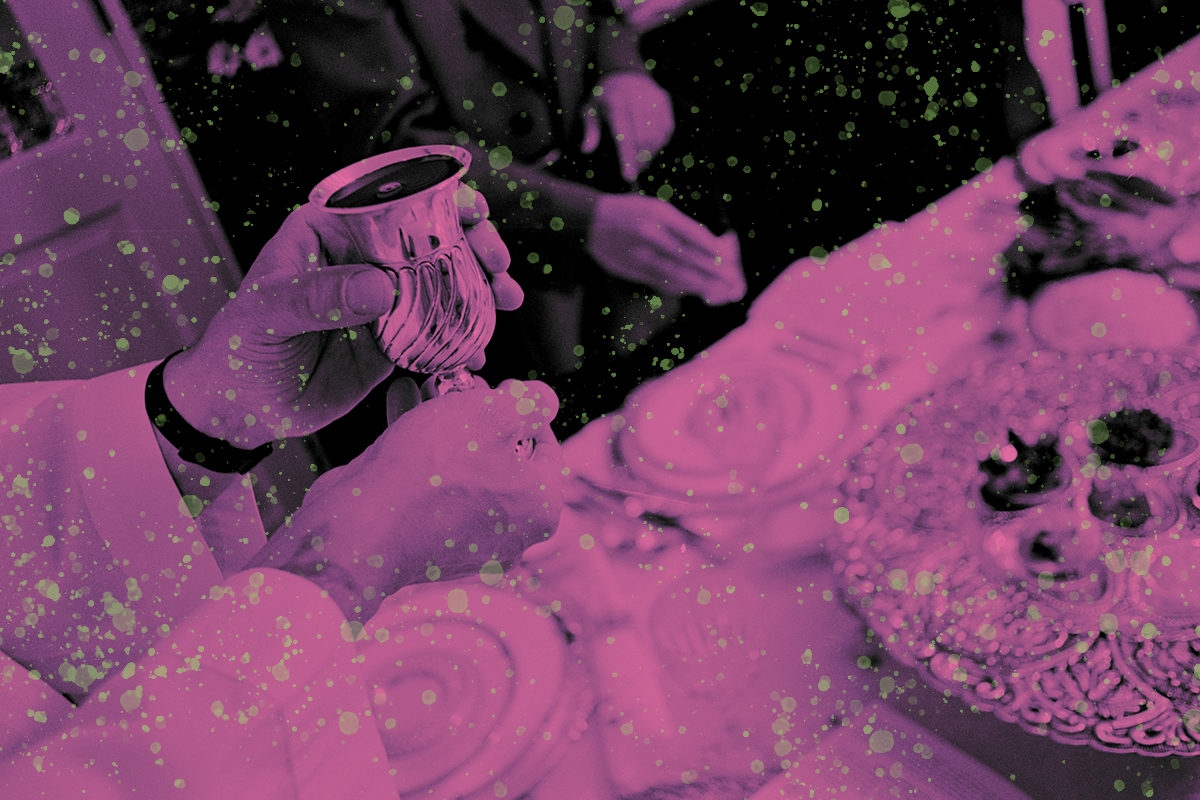Passover has been my favorite holiday since I was a child. But enumerating the plagues was then — and still is — the part I liked least about the seder. They always seemed so icky and extreme and far removed, surely the province of a distant time and place. (Locusts? Cattle Disease? Boils? ) They are alien and repulsive to children and adults alike.
It wasn’t until four years ago, when I first encountered hail, that I understood its awesome power. My son was driving and I was in the backseat with my one-year-old granddaughter. Suddenly, golf ball-sized hail relentlessly struck our car; I really thought we were going to die. In a feeble and pathetic attempt to take action, I grabbed a blanket and draped it over my granddaughter’s car seat. Although the hail lasted for only a few minutes, I grasped for the first time the meaning and power of the plagues.
And now 2020 has brought us a modern plague — coronavirus. As social distancing proliferates and governments mandate lockdowns, that means more and more synagogue services, bar and bat mitzvahs, and other communal programs are cancelled. And now, we’re left to wonder: What will we do about Passover, which is just around the corner?
Unlike toilet paper, paper towels, and hand sanitizer, there are still plenty of Passover products on the shelves of grocery stores. But how much to buy is the question? Will there be large extended family seders this year? Increasingly, it looks like that won’t be the case. Will we avoid getting together with grandparents and other relatives and friends with underlying health conditions? I think it’s safe to say that everyone will still be locked in their homes on April 8, the night of the first seder?
Passover has been the defining Jewish highlight of my life. It’s unthinkable to me to not observe it — and I want my children and grandchildren to enjoy the seders this year, too.
I have been making seders consistently since I was in my 20s, always with the goal of trying to recreate the huge family seders of my childhood. My maternal grandmother and her 11 siblings formed the Hittner Family Circle in order to get together and provide social and religious experiences for their children and grandchildren. The seder, which was held in a private room of a Manhattan hotel, was the highlight of the year for our family. At its peak, there were 80 relatives in attendance, and our family rabbi, my grandmother’s nephew, officiated. I remember scurrying under the tables with my many cousins, feeling proud as my father was called on year after year to read The Wise Child, and waiting for my turn to read the Four Questions, first in English, then in Hebrew. Most fun of all was joining in the search for the afikomen with the other kids.
Now that I am a grandmother, I continue to make seders with an eye to instilling a love of tradition in my grandchildren. I am reminded of this when I take out my growing collection of stuffed frogs and finger puppets — the kids play with the puppets throughout the seder, I put the larger stuffed frogs on the children’s seats, and my husband scatters the small ones on the table when the plagues are recited. And, each year, we begin the seder by passing around and breaking off a piece of a dark chocolate seder plate. It keeps alive the memory of my mother, who was a chocoholic, and also illustrates exactly how this night is different from all others: We are having dessert first!
So what are we to do in the time of coronavirus? Will the Passover seder be cancelled this year? I certainly hope not — after all, the Haggadah enjoins us to remember that “we were slaves in Egypt and God brought us out with a mighty hand and an outstretched arm.” It goes on to say that it is incumbent upon each one of us to tell the story of the departure from Egypt each year. Now, more than ever, it’s imperative that we have a seder, and not allow it to be another casualty of this year’s plague. We may be temporarily enslaved by the coronavirus, but we still have a responsibility to give our children and grandchildren the comfort and strength of ritual and tradition — and the optimism that this crisis will also pass.
As I conducted extensive research for my forthcoming novel, The Takeaway Men, I was struck that even in the darkness of the Holocaust, the Jews of Europe remembered Passover when they could. For example, on April 19, 1943, as Nazis entered the Warsaw Ghetto with explosions, machine guns and fire, there were still Jews there who were sitting around the seder table and reading from the Haggadah.
How do we, as responsible adults, comfort and empower our children and grandchildren in a world that is getting scarier each day? The seder, with its story of redemption, lilting songs such as “Dayenu,” and child-friendly rituals, presents a perfect opportunity to teach resilience. However, each day, the warnings get more dire. Communal seders have been cancelled and extended family seders will be eliminated this year.
So what are we to do? First, we must listen to our children very carefully and acknowledge their fears. It’s also a good idea to try to answer their questions simply and honestly. Let’s also remember that Moses and the Children of Israel were frightened, too. The Haggadah is the perfect roadmap to help us instill courage and hope in our children and grandchildren.
Passover is a celebration of freedom and redemption. While fear and increasing restrictions curtail our freedom this year, we can all take a cue from the final words of the Haggadah — “Next year in Jerusalem.” Those words have inspired Jews throughout the ages with the hope of better days to come.
For those who typically attend communal seders or a seder at the home of a friend or family member, making a seder for the first time can be daunting. But be assured that experienced friends, family, and clergy will be happy to provide guidance (via phone or email, of course). In addition, there are many books and online articles and programming to assist you. Here are a few ideas to help you and your children with your Passover plans this year.
1. The Jewish community has already shown ingenuity and dexterity in moving services, classes, and events online. Check out your local synagogue and Jewish organizations for virtual programs for Passover. The Jewish Broadcasting Service (JBS) is planning to tape a seder at The Hampton Synagogue before Passover that will be aired on one of the seder nights.
2. A good source for what’s going on nationwide is JewishLIVE: Its founder, Dan Libenson, announced recently that JewishLIVE “is curating the live Jewish experiences you want and need, in one place.” He asks that if you know of a live-streaming or online event you’d like to see on JewishLIVE, to let him know via Facebook.
3. With so many schools cancelled, place online orders now for Passover books and games and read/play them with your kids in advance of the holiday. Arts and crafts and cooking projects are also good in-home activities.
4. Engage in family projects and rituals that are comforting, anxiety reducing, and enjoyable, e.g. making charoset, arranging the seder plate, making matzah ball soup.
5. Mix things up with a new Haggadah and/or other Passover books. Let them be your guide to discuss how this year we may personally imagine the Exodus from Egypt in a different way.
6. If grandparents or other family members are unable to join with you physically, try connecting electronically (FaceTime, Skype, or Zoom), at least for portions of the seder. For example, have kids recite The Four Questions for their grandparents, prepare and lead certain songs, or let grandparents hide the afikomen and have kids question them about where it is hidden. Or if this is not possible or consistent with your practice, send videos or letters in advance of the holiday.
7. Before, after, and during the holidays, keep up with loved ones who are self-quarantined or socially distancing themselves with phone calls, emails, texts, letters, and cards.
Count your blessings and encourage your kids to do the same. This season will pass into memory, but the creativity, strength and resilience and the devotion to our traditions that we demonstrate will endure.
Image via Seth Joel/Corbis/VCG








